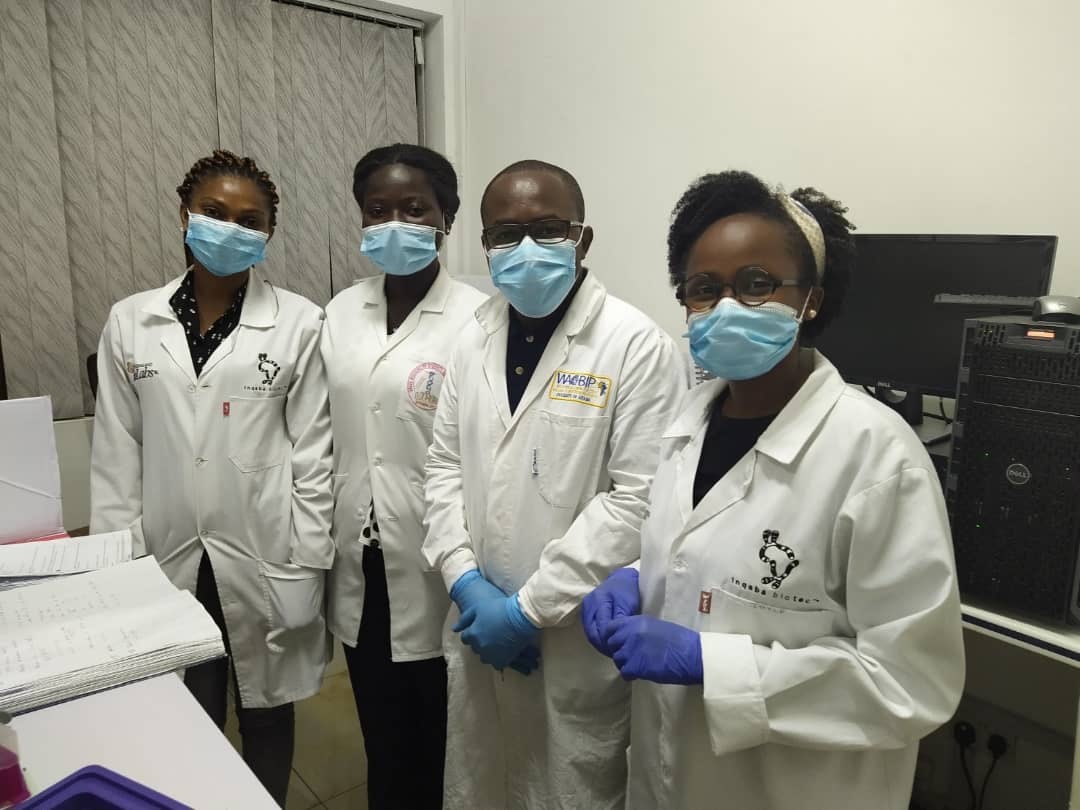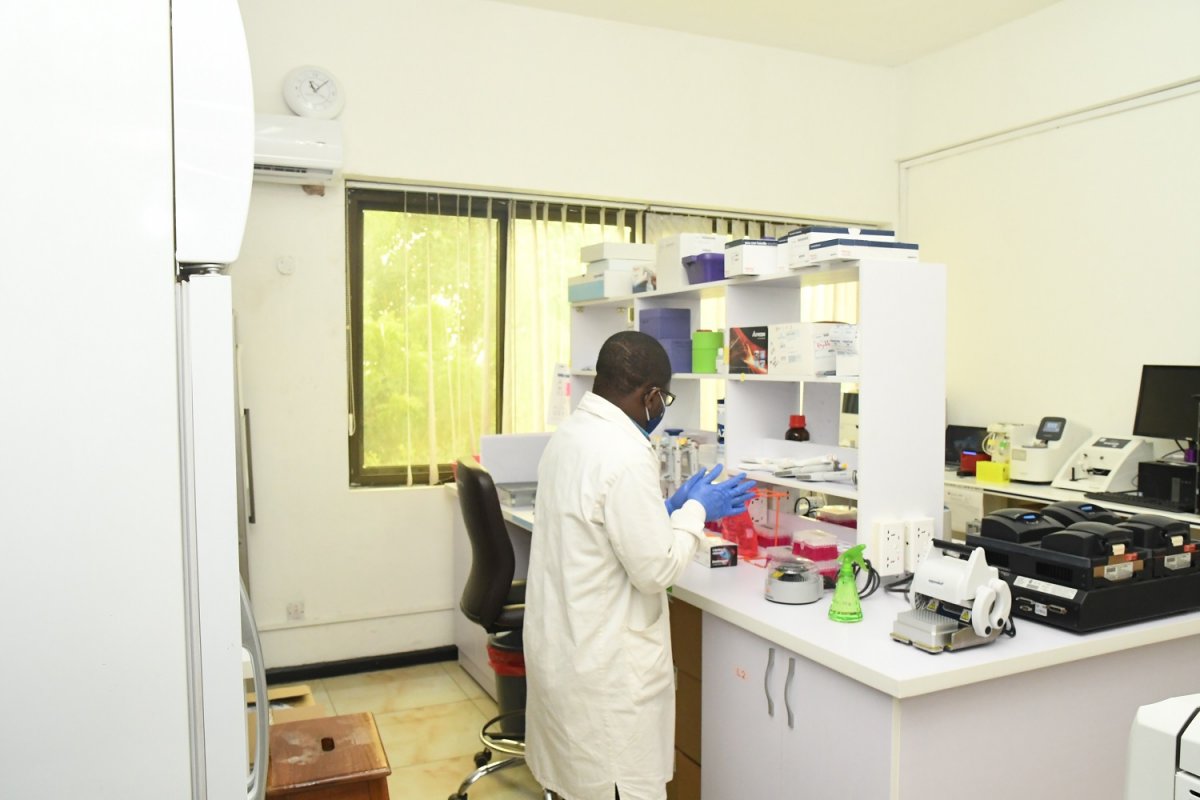
What is WACCBIP and what is it working on?
WACCBIP was established as one of the Centres supported by the World Bank as part of their African Centers of Excellence (ACE) project, and later obtained significant grant support from the Wellcome Trust under their Developing Excellence in Leadership Training and Science (DELTAS) Africa initiative.
Since its establishment in 2014, WACCBIP has systematically built world-class research infrastructure and assembled a strong team of scientists for research and training of biomedical scientists and health sector professionals across Africa. WACCBIP’s mission is to improve diagnosis, prevention and control of tropical diseases including malaria, tuberculosis and cancers in sub-Saharan Africa by providing an excellent research environment for Master’s, PhD and Post-doctoral level training. WACCBIP’s research focuses on the cell and molecular biology of pathogens (including protozoans, viruses, mycobacteria, trypanosomes, etc.), host-pathogen genetics/genomics, cancer genetics and bioinformatics.
How are WACCBIP and MalariaGEN working together on malaria genomic surveillance?
WACCBIP and MalariaGEN started a collaborative project in April 2018 aimed at building capacity for malaria genomic surveillance in West Africa. The project involves using deep amplicon sequencing to track antimalarial drug and insecticide resistance in Ghana and the Gambia, two contrasting settings in West Africa where malaria transmission is still considerably high in Ghana and relatively lower in the Gambia.
We are working with National Malaria Control Programmes (NMCPs) of both countries to explore ways of strengthening the relationships between research institutions and the NMCPs for integrating genomic surveillance data into the routine activities of the NMCPs to inform the design of strategies to mitigate the spread of drug resistance in parasites and insecticide resistance in mosquitoes.
How is WACCBIP working with NMCPs on malaria genomic surveillance?
WACCBIP has a liaison officer who is embedded into the NMCP team. He works directly under the NMCP Manager helping with programme activities and ensuring that there is space within the operations of the NMCP for our genomic surveillance project. He supervises the laboratory technologies at the NCMP sentinel sites (health facilities) dotted across the country which serve as our sample collection sites. Through a WhatsApp Platform, he and the project Coordinator are able to monitor the daily activities at these sites.
We also endeavour to hold regular quarterly meetings with the NMCP team to provide updates on progress on key milestones and to discuss use cases for the data, which will be most beneficial to the NMCP and easily integrated into their routine activities. Of note is the fact that relationships between the NMCP and researchers must be nurtured through constant interactions whenever possible. In light of this, we seize the opportunity to hold brief side discussions with the NMCP Manager and team when possible at national and international conferences to provide updates.
What impact has COVID had on WACCBIP?
The COVID-19 pandemic has had profound impact on everyone’s life. In March of 2020 when COVID-19 cases were on a daily rise, the country had to enter a lockdown. Project field and laboratory activities were halted, and our efforts redirected at optimizing a protocol for sequencing SARS-CoV-2. We had to rely on reagents from our genomics surveillance project to accomplish this task. Since the lockdown was lifted the situation has slowly returned to a new ‘normal’ with significant change in health seeking behaviour, which has slowed down our sample collection.

What are the results of WACCBIP research in the area of COVID?
WACCBIP was among the first groups to sequence the COVID-19 virus in Africa. These data have been published (Ngoi et al. Exp Biol Med 2020). In addition, we have undertaken community-based surveys (e.g. Markets, Malls, Lorry stations etc.) across our country to assess the extent of community exposure to the virus. These data are being curated, but preliminary analysis has shown an interesting pattern of exposure that correlates with social stratum with markets having a higher proportion of individuals who have antibodies to the virus.
Since a new strain of SARS-CoV-2 was reported in the United Kingdom, the Ghana Government is supporting WACCBIP to undertake further sequencing of all COVID-19 positive samples from travelers arriving in Ghana. This activity is on-going, and we will be in a position to report on the pattern of imported viral genotypes in Ghana very soon.
Has Covid-19 changed your thinking and approach to malaria genomics?
As I indicated earlier, notwithstanding the subdued clinical impact of COVID-19 in Africa in general, effect is palpable across our landscape. We now think that the capacity we are building for malaria genomics must be adapted to anticipate endemic disease surveillance as in the case of malaria, but also should be able to respond to epidemic diseases. We should be in a position to use our malaria genomics platforms to sequence, identify and track the evolution and spread of pathogens responsible for such outbreaks.
Ultimately, the COVID-19 pandemic has taught us that malaria genomics cannot be done in a vacuum. The profound impact of COVID-19 on health seeking behaviour suggests we begin to optimize our malaria genomics protocols for sequencing community infections. Besides, our analysis pipelines should anticipate coinfections with other pathogens that may be in circulation and look for them. To do this more efficiently, there is the need to optimize the use of portable sequencing tools such as the Nanopore MinION technology for field-based sequencing.
What do you hope your group will to achieve in 2021?
In general, we hope to continue to play a leading role in COVID-19 research in Ghana by generating sequence data for viral tracking, which is essential for informing the response of policy makers. As a training Centre we envisage attracting significant new funding in 2021 to enable us to increase our training opportunities across the African continent. Ultimately, we hope to increase our visibility within the scientific community through our popular annual research conference and publishing more articles in high impact journals.
How does working with MalariaGEN support your research?
WACCBIP has had strong research collaboration with MalariaGEN since its establishment. MalariaGEN is a key collaborator that has provided us with access to next-generation sequencing technologies over the years and has supported us to build local sequencing capacity. In addition, MalariaGEN has provided critical support to our PhD students through laboratory placement for experiential learning, which is an integral part of our PhD training programme. Also, we have received tremendous support from MalariaGEN through procurement of essential reagents and other supplies for our research. Lastly, but not least, by working with MalariaGEN, we are able to attract more funding to support our research and training activities.

